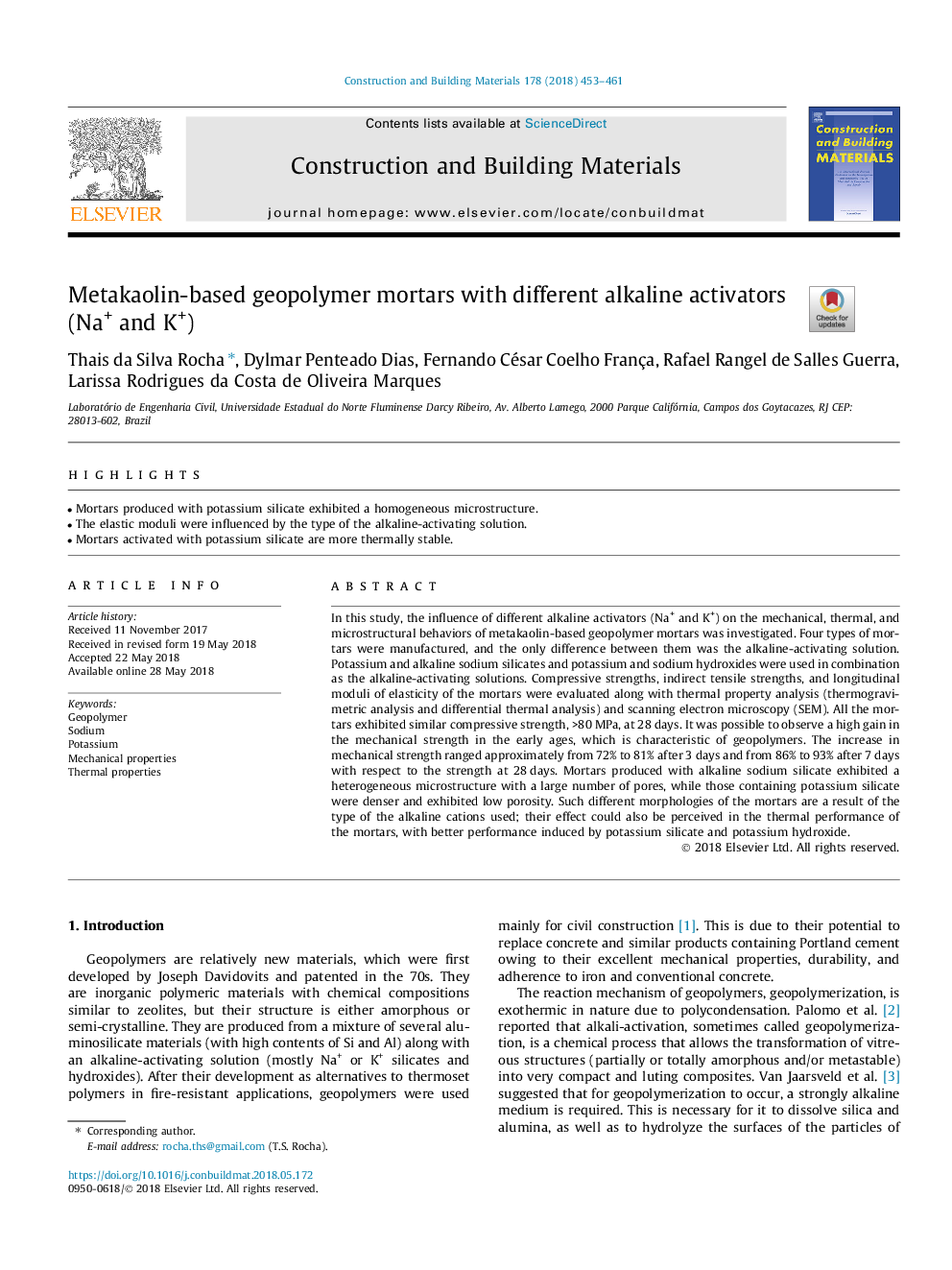| Article ID | Journal | Published Year | Pages | File Type |
|---|---|---|---|---|
| 6712908 | Construction and Building Materials | 2018 | 9 Pages |
Abstract
In this study, the influence of different alkaline activators (Na+ and K+) on the mechanical, thermal, and microstructural behaviors of metakaolin-based geopolymer mortars was investigated. Four types of mortars were manufactured, and the only difference between them was the alkaline-activating solution. Potassium and alkaline sodium silicates and potassium and sodium hydroxides were used in combination as the alkaline-activating solutions. Compressive strengths, indirect tensile strengths, and longitudinal moduli of elasticity of the mortars were evaluated along with thermal property analysis (thermogravimetric analysis and differential thermal analysis) and scanning electron microscopy (SEM). All the mortars exhibited similar compressive strength, >80â¯MPa, at 28â¯days. It was possible to observe a high gain in the mechanical strength in the early ages, which is characteristic of geopolymers. The increase in mechanical strength ranged approximately from 72% to 81% after 3â¯days and from 86% to 93% after 7â¯days with respect to the strength at 28â¯days. Mortars produced with alkaline sodium silicate exhibited a heterogeneous microstructure with a large number of pores, while those containing potassium silicate were denser and exhibited low porosity. Such different morphologies of the mortars are a result of the type of the alkaline cations used; their effect could also be perceived in the thermal performance of the mortars, with better performance induced by potassium silicate and potassium hydroxide.
Related Topics
Physical Sciences and Engineering
Engineering
Civil and Structural Engineering
Authors
Thais da Silva Rocha, Dylmar Penteado Dias, Fernando César Coelho França, Rafael Rangel de Salles Guerra, Larissa Rodrigues da Costa de Oliveira Marques,
